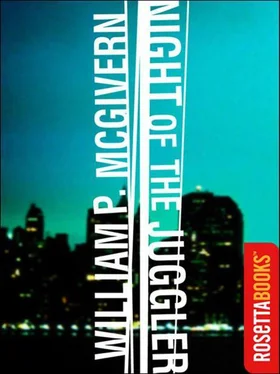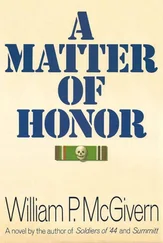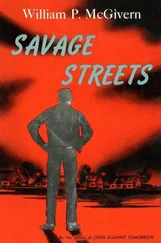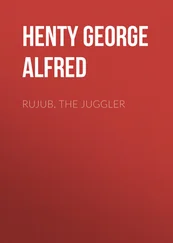William McGivern - Night of the Juggler
Здесь есть возможность читать онлайн «William McGivern - Night of the Juggler» весь текст электронной книги совершенно бесплатно (целиком полную версию без сокращений). В некоторых случаях можно слушать аудио, скачать через торрент в формате fb2 и присутствует краткое содержание. Жанр: Триллер, на английском языке. Описание произведения, (предисловие) а так же отзывы посетителей доступны на портале библиотеки ЛибКат.
- Название:Night of the Juggler
- Автор:
- Жанр:
- Год:неизвестен
- ISBN:нет данных
- Рейтинг книги:3 / 5. Голосов: 1
-
Избранное:Добавить в избранное
- Отзывы:
-
Ваша оценка:
- 60
- 1
- 2
- 3
- 4
- 5
Night of the Juggler: краткое содержание, описание и аннотация
Предлагаем к чтению аннотацию, описание, краткое содержание или предисловие (зависит от того, что написал сам автор книги «Night of the Juggler»). Если вы не нашли необходимую информацию о книге — напишите в комментариях, мы постараемся отыскать её.
Night of the Juggler — читать онлайн бесплатно полную книгу (весь текст) целиком
Ниже представлен текст книги, разбитый по страницам. Система сохранения места последней прочитанной страницы, позволяет с удобством читать онлайн бесплатно книгу «Night of the Juggler», без необходимости каждый раз заново искать на чём Вы остановились. Поставьте закладку, и сможете в любой момент перейти на страницу, на которой закончили чтение.
Интервал:
Закладка:
The Gypsy traced the vivid scar on his cheek with a fingertip. “Let’s take him,” he said.
Pulling a police whistle and red-beamed flashlight from the pocket of his topcoat, Tonnelli ran to the middle of Seventy-second Street, leaping nimbly from the path of a station wagon of blacks who left streams of curses trailing on the air with their exhaust fumes.
Tonnelli blew a half dozen piercing blasts while the red beams of his flashlight cut wide and brilliant arcs through the darkness.
“Police! Hit your brakes! Halt!” he shouted at the onrushing streams of traffic.
Luther Boyd went to Tonnelli’s car and put his hand on Barbara’s cheek.
“I’ll get her back. That’s a promise. Hang in there.”
And then he was gone, running through a corridor formed by stopped cars to join Tonnelli on spongy ground north of Seventy-second Street.
In less than a minute, Boyd had once again picked up the prints of the Wellingtons and his daughter’s small boots.
He asked Lieutenant Tonnelli, “Did you post a skirmish line across the park between Sixty-ninth and Seventieth?”
“That was done five minutes after your wife called us. Except that I put them on Transverse One at Sixty-sixth Street. It’s a wall of cops. I figured the Juggler had to be on one side or the other of it.”
Tonnelli flicked the switch on his two-way radio. “This is Tonnelli. I want Rusty Boyle.”
After a few seconds, Boyle’s miniature voice sounded from Tonnelli’s radio.
“Ten-four, Lieutenant.”
“Rusty? I want you to move our line from Sixty-sixth up to Seventy-second Street. Make damn sure the men are in voice contact with each other. Make goddamn sure nobody goes south through that line without being stopped and questioned.”
“Roger, Lieutenant.”
“Then let’s move out,” Luther Boyd said.
Searching the ground with narrowed eyes, he went off at a pace which forced Tonnelli to break into a half run to keep up with him.
“We’ve got to take the north end of the park away from him,” Luther Boyd said.
“Any idea how we do that?”
“Yes,” Luther Boyd said. Then: “You call him the Juggler. Why?”
“You’d be better off not knowing, Colonel.”
“It’s not what I want to know. It’s what I need to know, Lieutenant. . ”
They were moving swiftly through a shadowed meadow on which the first traces of hoarfrost were gleaming under the moonlight, an expanse bordered with the dramatic green of Austrian pines, and it was against this background of fairy-tale beauty and tranquility that Gypsy Tonnelli told Luther Boyd what he knew of the creature the New York police called the Juggler.
“To win battles, you do not need weapons, you beat the soul of the enemy. . ”
Patton was more often right than wrong, Luther Boyd believed, and believed from his own experience that to know the enemy was half of victory.
He had seen the man they called the Juggler, he realized, standing stock-still in nighttime traffic on Fifth Avenue, staring up at their apartment. That fact was no help to him, but knowing who and what the Juggler was did give him a certain hope. A psychopath, corroded with guilt and fear. They could use that to their advantage. .
To confuse him without frightening him, that was essential, so that his panic would be tinged with uncertainty rather than defensive anger.
Destroy his orientation, but without threatening him. Make him believe he had lost direction or taken a wrong turning; never make him feel cornered or trapped.
Kate must have sensed what he was. . At eleven, she was a highly perceptive and intelligent child. She might well have realized that if she could summon up the nerve to conceal her fears and stand her ground, this could conceivably deflect and disrupt the Juggler’s monstrous needs.
She was walking beside him, and that fact gave him additional hope.
As long as she was not under physical restraint, it could be inferred that the Juggler had a destination in mind and was heading for it.
And where would that be? Far north of here, beyond the Receiving Reservoir, beyond the upper Nineties, where Central Park became a true jungle, an area where not only the laws of the city but the laws of humanity had long since been suspended.
Luther Boyd stopped and checked Tonnelli with a hand on his arm.
“Hold it a minute,” Boyd said.
“What is it?” Tonnelli asked him quietly.
Boyd stared ahead into the darkness and listened to the sounds of winds in the crowns of giant oak trees.
“A hunch. He knows we’re after him.”
“What makes you think so?”
Boyd thought fleetingly of classrooms at Fort Benning where he might have answered Tonnelli’s question in some detail. . He would have explained intangibles, such as the inferences to be drawn from the sounds and smells and “feels” of battlegrounds. He might advise him of Mao Tse-tung’s famous Three Rules and Eight Remarks, a code of military and civilian principles adopted by the Red Army, whose applications had broken the combined might of the Japanese imperial forces and the U.S.-bolstered troops of Generalissimo Chiang Kai-shek. Arise in the east, but attack from the West. . destroy confidence in terrain. . confuse the enemy’s rear. . feint reserves into chaos.
He couldn’t pin down what was alerting him now. It was pure instinct, and he couldn’t explain that to the lieutenant any more than he could explain why soldiers were comfortable with the expected sounds of combat, but that something unexpected like screaming banzai charges or the wild, thrilling music the North Koreans had used so effectively could turn seasoned troops into disorderly mobs.
It was hard to explain things like that unless you’d experienced them.
“For one thing, his strides are longer now,” Boyd said.
Then he noticed something that gave support to his previous instinctive anxiety. He moved swiftly but silently to a twisted thorn-studded Japanese angelica tree and from one of its spikes picked off a strand of coarse brown wool. Even though the cluster of threads was small, no larger than a fingertip, they exuded a rank, animal-like odor.
“Brown sweater,” Boyd said.
“The Juggler,” Tonnelli said.
“And one other thing,” Boyd said. “He wouldn’t have walked into that tree, unless he was looking over his shoulder, worried about something behind him.”
“What could have stirred him up?”
“Psychopaths usually have physical compensations.”
“Better eyes, better ears?”
“Right. So far, he’s made only one mistake. When I found my daughter’s Scottie, that gave me a direct fix on him. When I heard Kate scream, I ran toward the sound. But I could have missed it by a hundred yards or more if the dog’s body hadn’t given me the line.”
“Jesus Christ,” Gypsy Tonnelli said softly. “Colonel, compared to you, an iceberg would look like a blast furnace. How can you just stand here?”
“Because I must,” Luther Boyd said. “Let him calm down. I want my daughter alive.”
Boyd began to consider options, a tactical administration of his simple strategy. They stood presently on the east-west line of Seventy-third Street. Transverse Three to the north ran a curving course from Fifth Avenue at Eighty-fourth Street to Central Park West, Eighty-sixth Street.
“Lieutenant, do you have fifty officers in your reserve?”
“We got a hell of a lot more than that, and I’m taking a hell of a responsibility not committing them.”
Central Park was about a half mile wide. Fifty times fifty would cover it.
“Then commit fifty patrolmen to Transverse Three with transistor radios. Post them at fifty-foot intervals. Tell them to take positions north of the transverse, to take cover in shrubbery or shadows, and to turn their radios onto rock stations at full volume.”
Читать дальшеИнтервал:
Закладка:
Похожие книги на «Night of the Juggler»
Представляем Вашему вниманию похожие книги на «Night of the Juggler» списком для выбора. Мы отобрали схожую по названию и смыслу литературу в надежде предоставить читателям больше вариантов отыскать новые, интересные, ещё непрочитанные произведения.
Обсуждение, отзывы о книге «Night of the Juggler» и просто собственные мнения читателей. Оставьте ваши комментарии, напишите, что Вы думаете о произведении, его смысле или главных героях. Укажите что конкретно понравилось, а что нет, и почему Вы так считаете.












